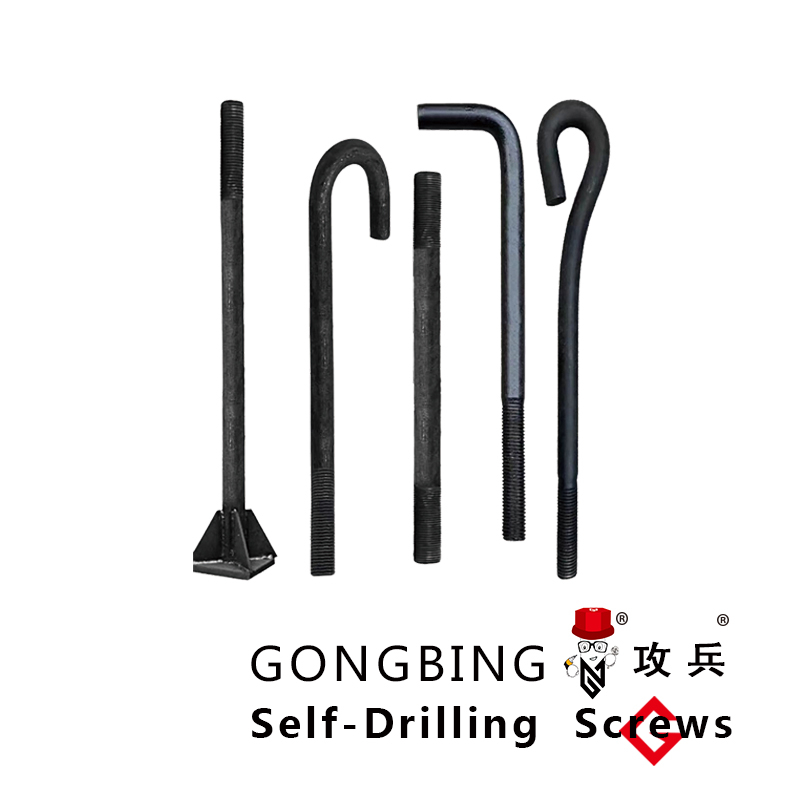Key Considerations for Selecting Durable Fasteners in Structural Steel Applications
Understanding Structural Steel Fasteners Their Importance and Applications
Structural steel fasteners are crucial components in construction and engineering, providing the necessary connections that ensure the integrity and stability of structures. These fasteners include bolts, nuts, screws, and washers that join steel elements, such as beams, columns, and plates, allowing them to function as a cohesive unit under various loads and stress conditions.
Types of Structural Steel Fasteners
1. Bolts Bolts are one of the most common types of fasteners used in structural steelwork. They come in various grades and sizes, with common specifications such as ASTM A325 and A490 in the United States. Bolts are typically used in conjunction with nuts and washers to create strong, durable connections. They can be tightened to specific torque levels, ensuring that the connection remains secure under changing loads.
2. Nuts Nuts are used in tandem with bolts to provide a clamping force. They come in different shapes, sizes, and grades, and their choice is dependent on the bolt size and the required tension of the connection. Additionally, locking nuts may be utilized to prevent loosening due to vibration or other forces.
3. Screws While screws are often associated with wood or lighter applications, they also have specific uses in structural steel. For instance, self-drilling screws are designed to create their own hole and can be used to fasten thin steel sheets.
4. Washers Washers are essential in steel connections to distribute load and reduce surface friction. They help to prevent galling and ensure a more secure connection by providing a flat surface for the nut or bolt head.
Materials and Coatings
Structural steel fasteners are typically made from high-strength steel to withstand significant loads. The material’s properties, such as yield strength and tensile strength, are critical in ensuring that the fasteners can perform adequately under various conditions. Moreover, finish and coatings play a crucial role in protecting fasteners from corrosion, which can severely weaken steel structures over time. Common coatings include galvanizing, which involves applying a zinc layer, and organic coatings that provide a barrier against moisture and contaminants.
Installation Techniques
structural steel fasteners

Proper installation of structural steel fasteners is vital for ensuring the reliability and safety of the entire structure
. Various installation techniques exist, including- Pre-tensioning This technique applies a specific amount of tension to the bolts before load is applied, ensuring that the connection remains strong and secure. - Tension Control Bolting This method uses special bolts that allow for controlled tension during the installation, which can improve reliability and reduce failure risk. - Welding In some applications, welding is used as an alternative to bolting for creating fixed connections. This method requires skilled labor and precise techniques to ensure the quality of the weld.
Applications of Structural Steel Fasteners
The applications of structural steel fasteners are vast and varied, encompassing a range of industries, including
1. Construction Fasteners are used in building structures, bridges, and industrial facilities where steel frames are commonplace. They provide both primary and secondary connections among steel members.
2. Manufacturing In the production of machinery and equipment, fasteners secure components that undergo heavy stress and movement.
3. Infrastructure Structural fasteners are essential in the construction of heavy infrastructure, such as highways, railroads, and dams, where safety and durability are paramount.
4. Marine and Aerospace In these industries, fasteners must meet rigorous safety standards and support demanding operational conditions.
Conclusion
Structural steel fasteners are the unsung heroes of the engineering and construction industries. Their ability to secure and stabilize steel structures is foundational to modern architecture and infrastructure. With ongoing advancements in materials and installation practices, the efficiency and effectiveness of these fasteners continue to improve, helping to ensure that future structures are safe, durable, and sustainable. Understanding the importance of these fasteners is crucial for professionals in the field, as their proper selection and installation play a significant role in the success of any structural project.
-
Weatherproof Plastic Expansion Anchors for OutdoorNewsJun.06,2025
-
Sustainability in the Supply Chain: Eco-Friendly TEK Screws ProductionNewsJun.06,2025
-
Load-Bearing Capacity of External Insulation FixingsNewsJun.06,2025
-
Double Head Bolts: Enhancing Efficiency in Industrial MachineryNewsJun.06,2025
-
Corrosion Resistance in Chipboard Screws: Coatings for Wholesale DurabilityNewsJun.06,2025
-
Butterfly Toggle Bolts : Enhancing Structural ResilienceNewsJun.06,2025
